Nitrosigine is a patented ingredient from Nutrition21 which has become an incredibly popular nitric oxide boosting dietary supplement ingredient in the sports nutrition market. It's an inositol stabilized form of arginine silicate – sometimes referred to by the acronym ASI – that was formulated to improve the bioavailability of orally-administered arginine silicate.[1] The inositol and the silica keep the arginine from breaking down, and ASI reduces the activity of arginase, an enzyme that breaks down arginine in the gut.[2]
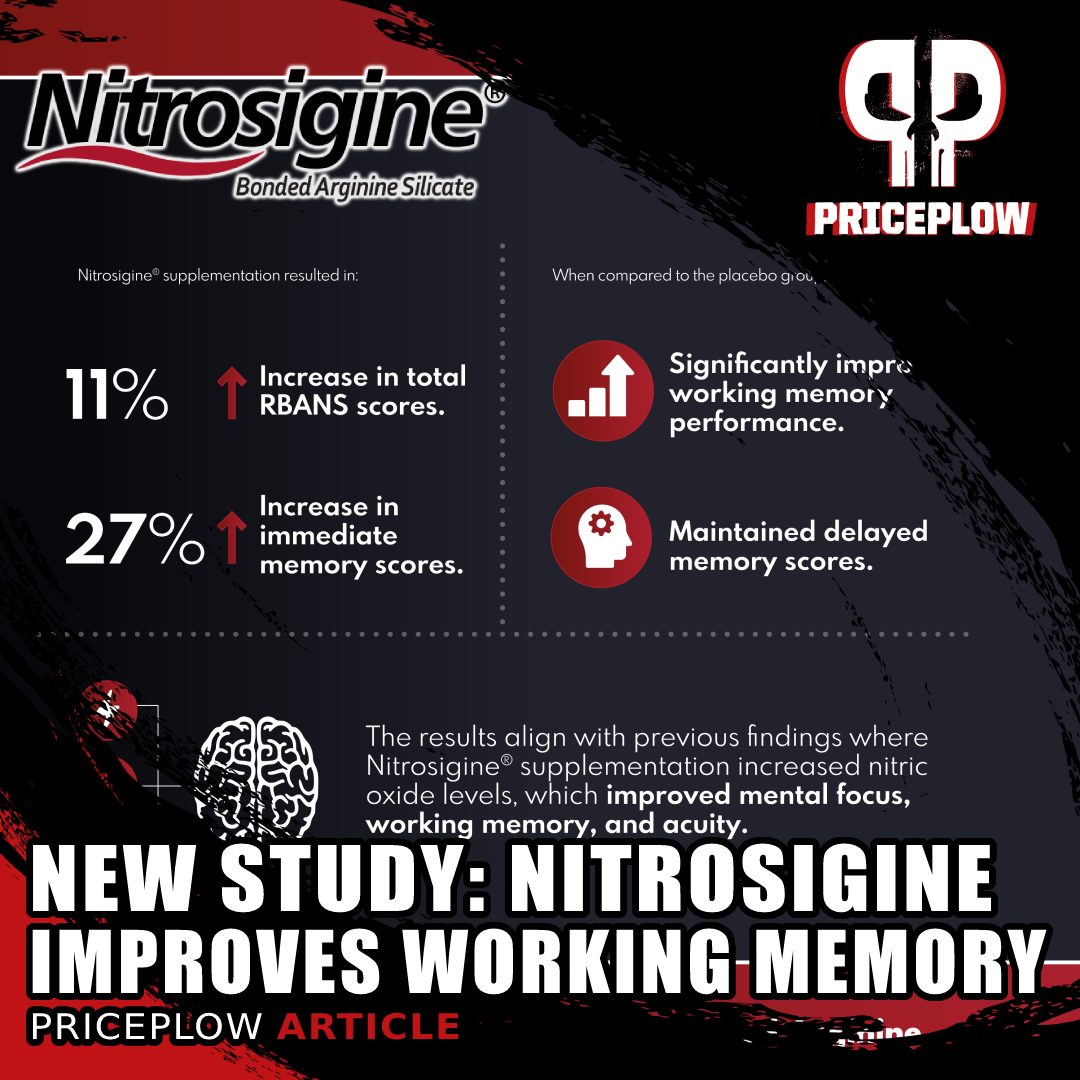
A new study published in late 2021 showed that Nutrition21's Nitrosigine improves working memory and cognitive function in healthy young adults[3]
Nitrosigine: Inositol Stabilized Arginine Silicate that boosts Nitric Oxide production
Arginine works by targeting nitric oxide (NO),[4] a signaling molecule that's crucial to the biological function of all vertebrates, including humans. In the presence of nitric oxide, the smooth muscle lining the inside of our blood vessels relaxes, causing the diameter of those vessels to expand.[5]
This dilation of the blood vessels, called vasodilation, has long been prized by athletes and bodybuilders because of the increased blood flow and hence greater nutrient delivery afforded by this effect[6] - also known as "the pump".
New Nitrosigine Research: Healthy effects in the brain
When weightlifters chase a good pump, they're usually trying to maximize their physical performance. But it turns out that the pump is good for your brain as well. We've previously written about Nitrosigine's effects on NO production and cognition in our article titled Nitrosigine: The Nitric Oxide Booster That Enhances Brain Function.
Today, we'll be discussing a new study published in December of 2021 on that same subject.[3]
The Question: Does Nitrosigine Help Healthy People?
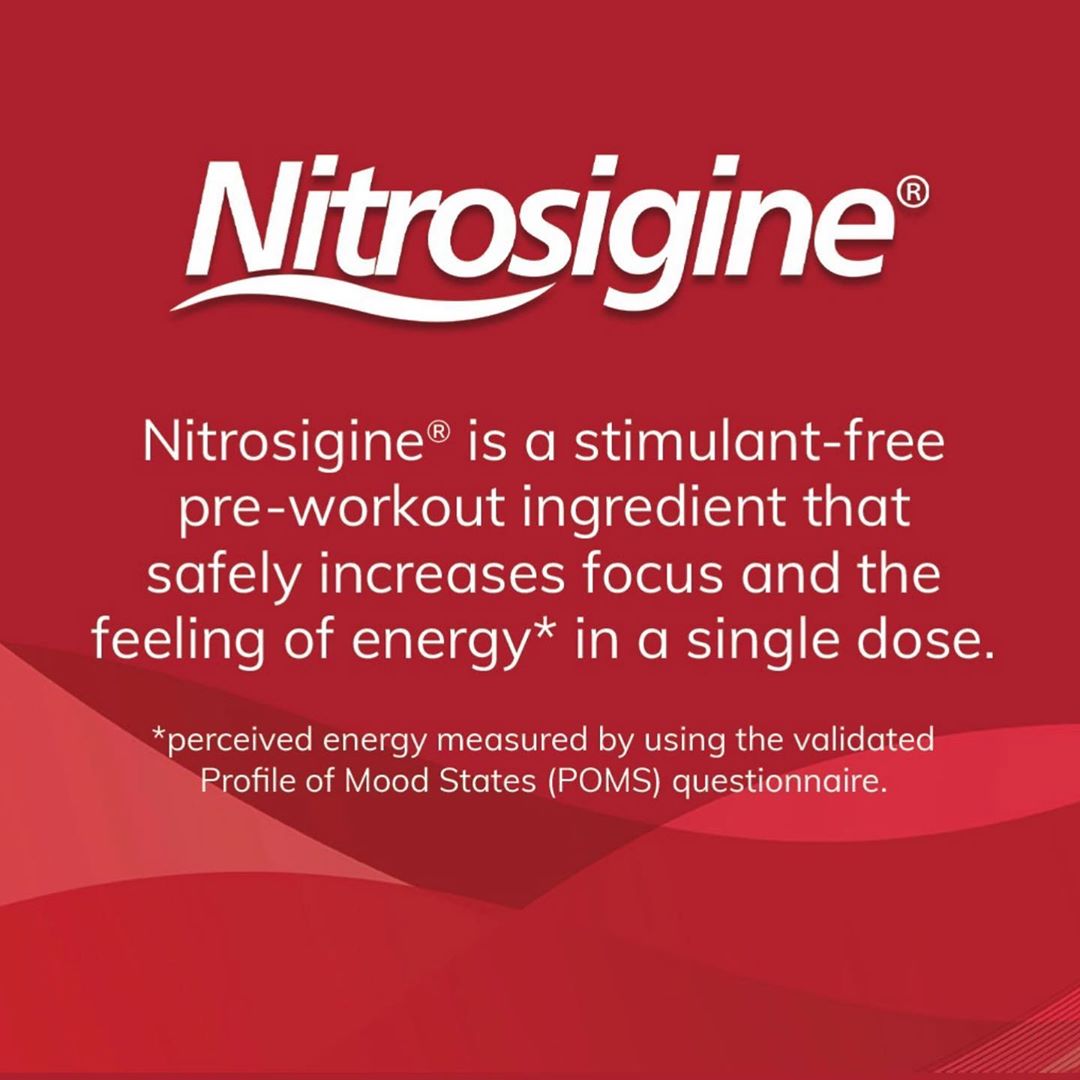
Nitrosigine is primarily found in pre-workouts due to its ability to boost nitric oxide levels... but don't forget about its cognitive-supporting capabilities!
Before we dig into the study, let's go over a little context for this research. It's been known for some time that nitric oxide is neuro-supportive,[7] and upregulating nitric oxide function in people with mild cognitive impairment helps support normal cognition.[8] This isn't totally surprising, since many neurodegenerative illnesses are characterized by a lack of proper blood flow to the brain.[7] It makes perfect sense that boosting blood flow to the brain via NO signaling could help to address some of this decline.
It's often the case in clinical research that a supplement can help healthy people support an existing healthy baseline. However, we don't often see improvements in healthy people, especially if they're young and healthy. The study covered today deviates from the norm, since it showed benefits in healthy, young people.
Gills et al., the authors of this study, set out to establish whether Nitrosigine could specifically improve cognition in healthy, young adults.[3] Here, there's an emphasis on young, since the subjects of their study were on average about 21 years old, which is just prior to when age-related cognitive decline typically begins.
Study Design
The first thing to note about this study, published under the title "Acute Inositol-Stabilized Arginine Silicate Improves Cognitive Outcomes in Healthy Adults" (spoiler alert!),[3] is that it's double-blind, randomized, and placebo-controlled – the type of study design that's considered to be the "gold standard" in clinical research because of how effectively it isolates the variables being studied. This means the results of this experiment should carry a lot of weight.
19 young adults between the ages of 18 and 28 were selected for this study. After being medically evaluated to ensure they had no conditions that could affect the outcome of the study, they were randomized to one of two groups:[3]
- a placebo group that received 8 grams of dextrose, and
- a Nitrosigine group that received 8 grams of dextrose plus 1.5 grams of Nitrosigine (ASI).
Subjects visited the laboratory for two separate testing sessions that were at least seven days apart. They were given their assigned supplement and made to wait 60 minutes.
After the 60 minute digestion period, each session consisted of administering a variety of cognitive tasks to both groups before and after supplementation, including the Repeatable Battery for the Assessment of Neuropsychological Status (RBANS), a test whose scores correlate so strongly with those of IQ tests like the Wechsler Intelligence Scale that it is itself basically an IQ test.[3]
Study Results
The RBANS results showed statistical significance for Nitrosigine:
RBANS Immediate Memory Subtest
The statistically significant increase of the Nitrosigine group's performance compared to placebo came in the RBANS subtest for immediate memory, which is defined as the ability of an individual to recall information recently presented.[9] In other words, your immediate memory is the limited amount of information you can hold in your mind for the purpose of actively learning.
Because of this, immediate memory is often measured as an index of cognitive health – people with good cognitive health typically have good "short-term" memory.
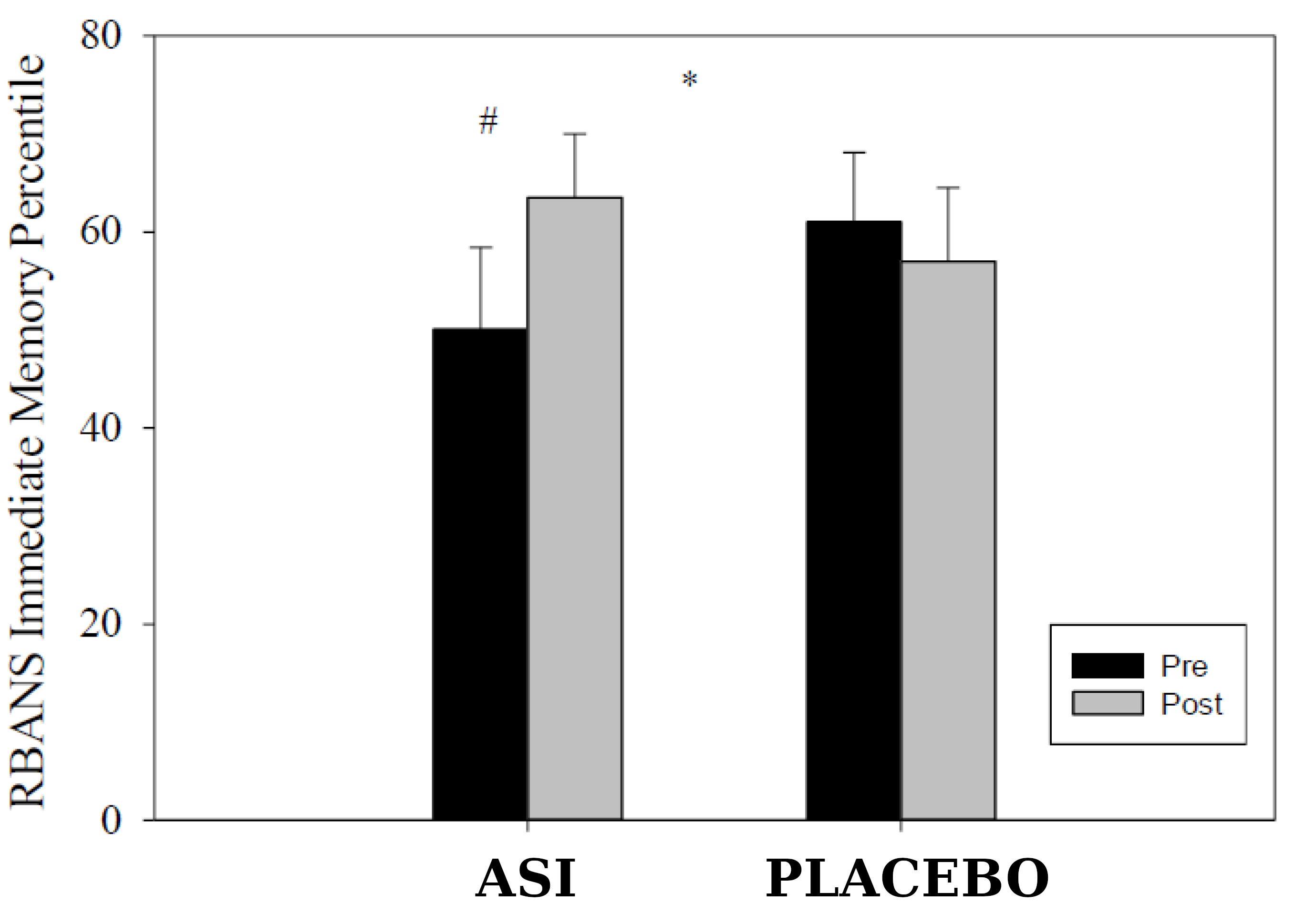
Research subjects in the Nitrosigine (ASI) group showed a statistically significant improvement in their immediate memory subtest scores, compared to placebo (PLA).[3]
That immediate memory is considered so foundational to global cognition bodes well for Nitrosigine, because the subjects taking Nitrosigine showed a significant improvement after dosing, compared to placebo. Before taking Nitrosigine, the patients in the Nitrosigine group placed in about the 50th percentile of test-takers – exactly middle-of-the-road, by definition.
After taking Nitrosigine, they placed in about the 64th percentile of test-takers on average, with a whopping 27% increase in their scores on the immediate memory subtest.[3]
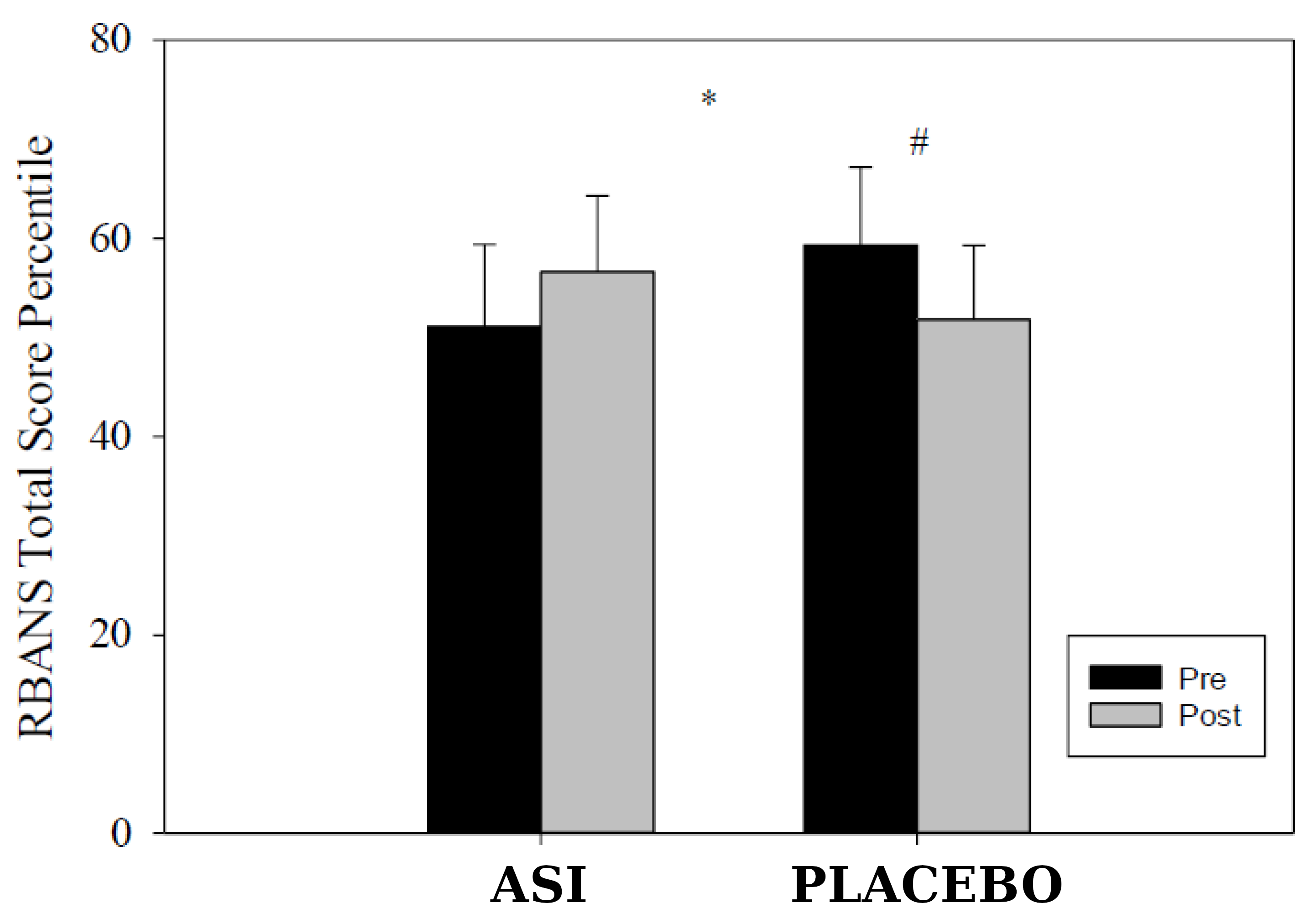
Subjects taking Nitrosigine (ASI) scored significantly higher overall on the RBANS, compared to placebo (PLA).[3]
The effect size of the immediate memory subtest improvement was big enough that the overall RBANS score of those taking Nitrosigine was significantly improved. The placebo group actually did slightly worse on the test during their post-supplement sessions.
What does it mean?
While the immediate memory subtest was the only subtest where Nitrosigine achieved statistical significance over the placebo group, it's important to note that the memory score improvement was huge – a 27% increase.[3]
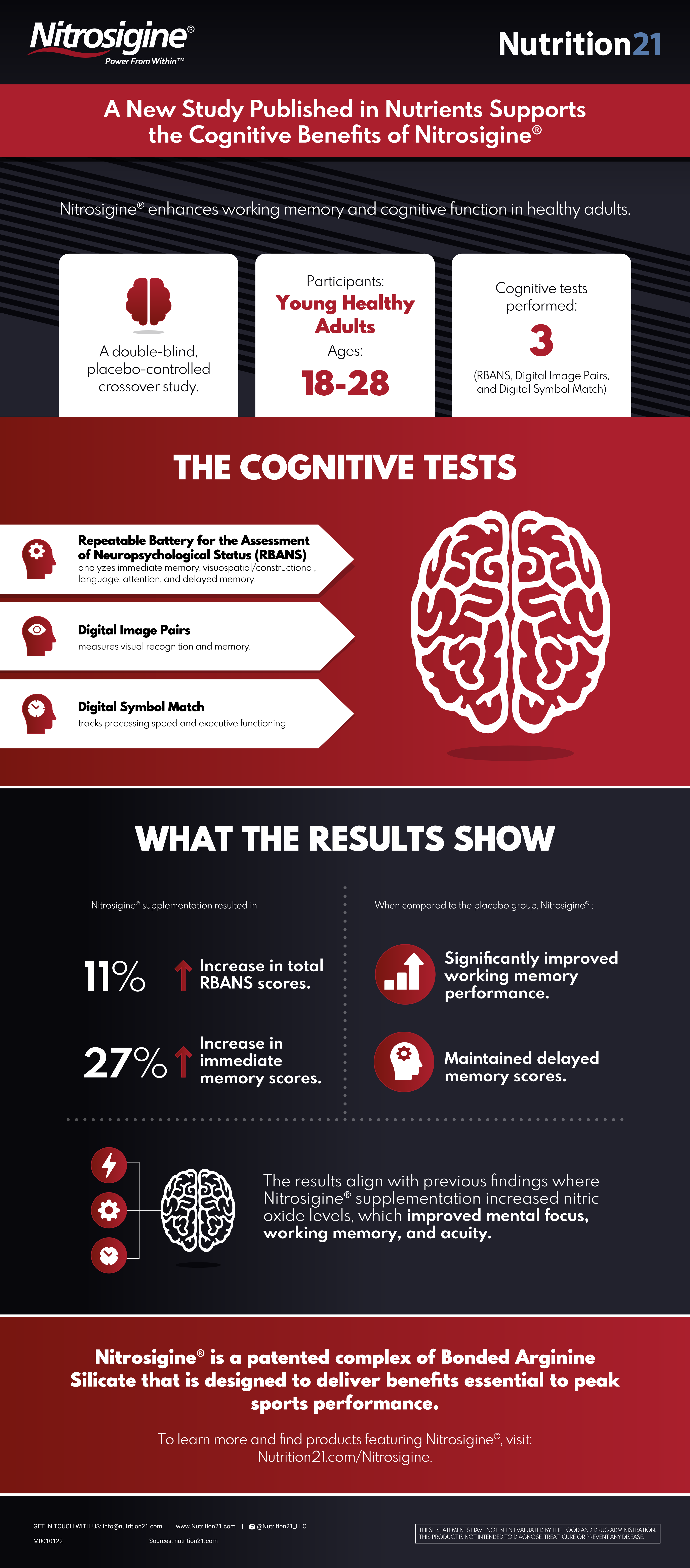
Nutrition21 passed around this helpful infographic after the Nitrosigine cognition study on healthy young adults was published.
Given how foundational immediate, short-term, and working memory are to learning and cognition,[10] we think this is a significant finding that warrants replication and further research.
Putting this study back in context
As Gills et al. point out, their findings are consistent with the results of other peer-reviewed studies on Nitrosigine. It has previously been shown to enhance cognitive flexibility in tests such as the trail making test.[11,12] Additionally, Nitrosigine has also been shown to improve or maintain cognitive performance under certain conditions, such as in athletes immediately following strenuous exercise,[13] which is known to cause a temporary decline in cognition.
What makes this study unique – and the reason we believe Nitrosigine deserves much more research as a potential nootropic – is that it showed Nitrosigine can improve cognition in healthy young adults under normal conditions.[3]
Implications for nooLVL and esports
Additionally, given that bonded arginine silicate is a major component of Nutrition21's gamer-targeted nooLVL ingredient, this is a promising result for the esports market as well, since short-term and working memory are incredibly important components of competitive gaming.
This study utilized 1500 milligrams of ASI, and a full dose of nooLVL contains that much ASI and an additional 100 milligrams of inositol, so we're confident in applying this short-term memory research to gaming supplements using a full 1600 milligram dosage of nooLVL as well.
Conclusion
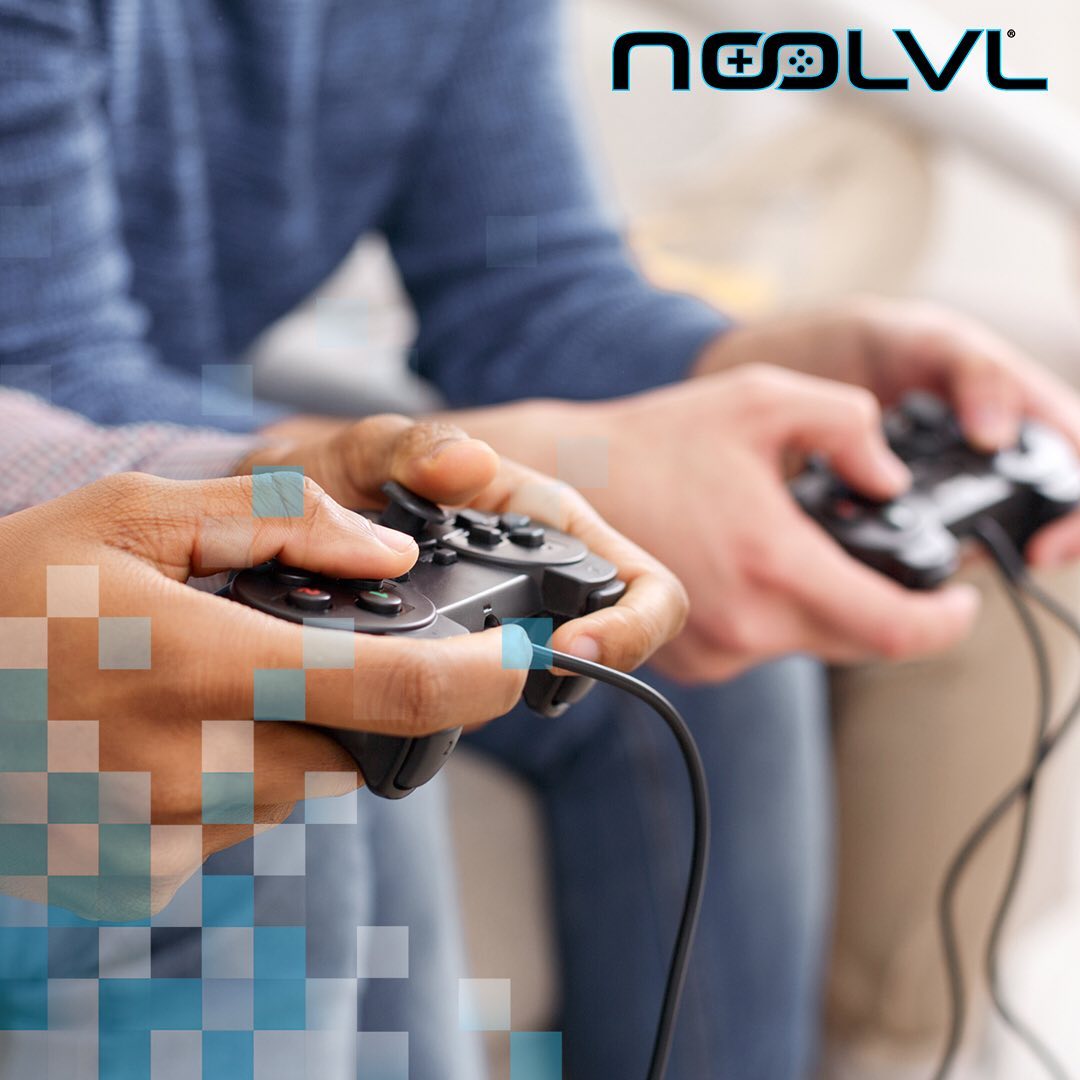
This study has implications for nooLVL, which is made for gamers but can be useful in numerous types of nootropic applications
Gills et al. points out in their conclusion that enhanced cerebral blood flow probably means enhanced cerebral glucose uptake, which is important because good glucose metabolism in the brain has long been recognized to support cognitive function.[14]
Now that Nitrosigine has shown promise as a support for immediate memory, we hope that more studies will come out with larger sample sizes in healthy young adults. Based on what we know about Nitrosigine and human physiology, we are hopeful that future studies will probably at least confirm the findings of Gills et al.
Meanwhile, if you're looking for a cognitive edge, consider any of the numerous supplements containing Nitrosigine covered here on the PricePlow Blog -- remember that 1500 milligrams is the clinically-tested dosage -- and subscribe to our Nutrition21 news alerts to stay up to date on future releases:
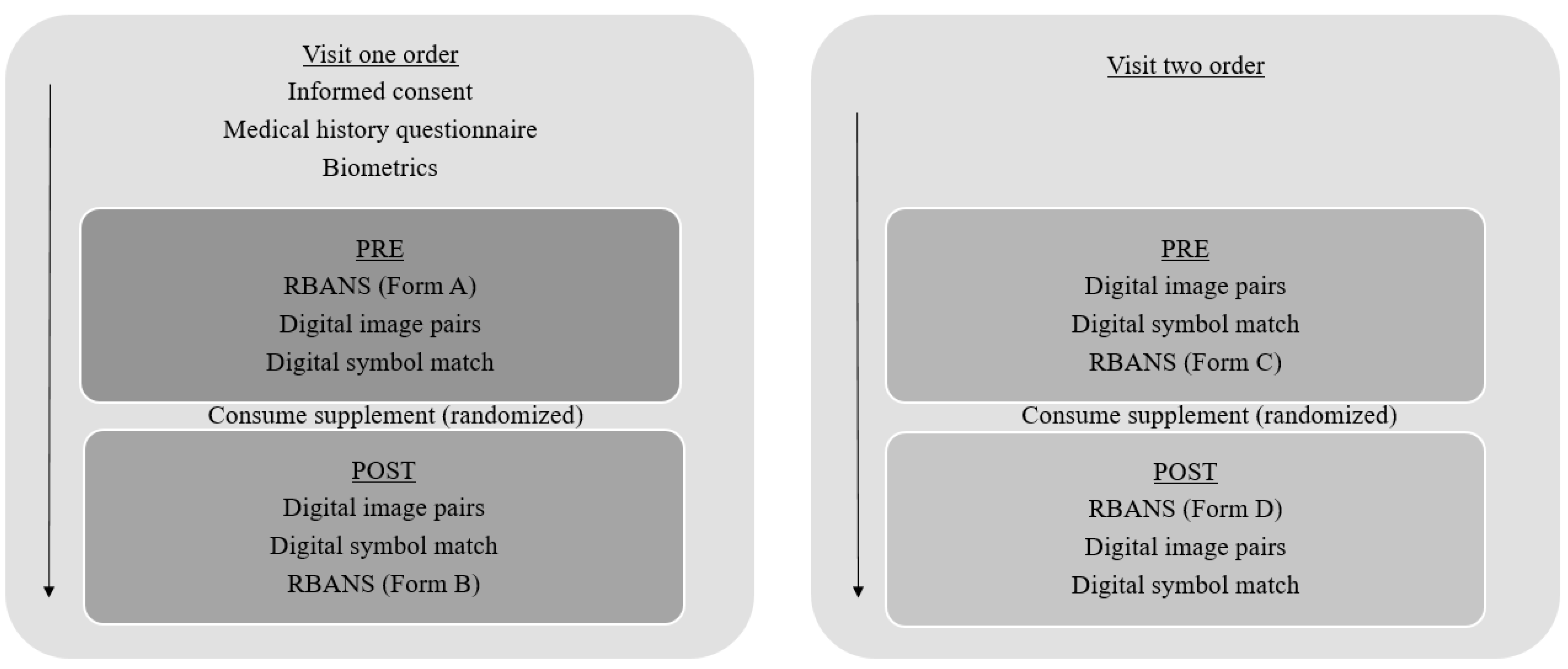


Comments and Discussion (Powered by the PricePlow Forum)